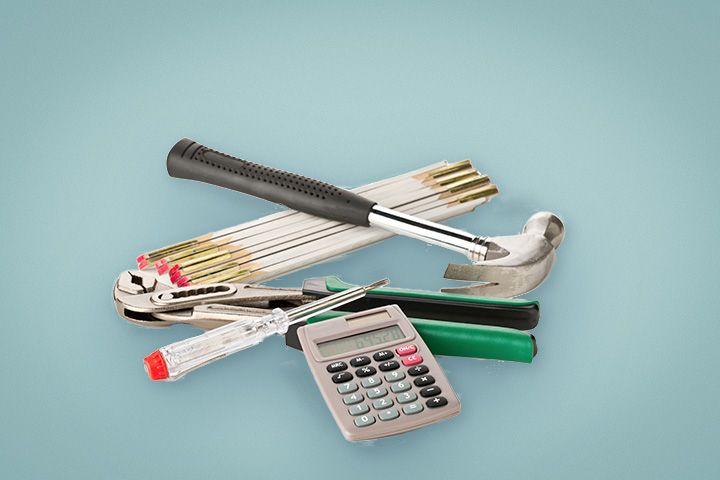How can you donate or leave a legacy to a charity?

Keytrade Bank
keytradebank.be
January 18, 2022
(updated September 22, 2022)
7 minutes to read
Money and happiness are not directly correlated. People who don't have enough will be made happy by money. But over a certain threshold, having more money doesn't make you any happier. In Belgium, Professor Lieven Annemans researched where this threshold lies: somewhere between EUR 4,000 and 4,500 net income per month. So, from a scientific point of view, you might say: just give away whatever you receive over that level.
The answer to "when should you give something away and how much" is, of course, not really a simple scientific formula. There are so many factors involved. Your age, background and philosophy, personal problems or prosperity, what examples you see around you, and many more. What applies to everyone, however, is that giving makes them feel good: whether it’s a snack for the postman, a donation to a charity, or making time for a friend with problems. In this article, we’ll take a closer look at how you can bequeath or donate something to a charity, and what to bear in mind.
In your will
If you do not organise what is to happen to your assets after your death, the standard inheritance law will apply. This means in Belgium that your estate will first be divided between your partner and/or children, if you have any. If you do not, your parents, brothers/sisters or their children get a piece of it. This continues, until the government ultimately receives your estate if there is no heir.
With a will, you can choose what happens to your estate (or part of it). If you have children or are married, in Belgium you cannot simply leave all of your assets to charity. Your children are jointly entitled to at least 50% of your estate, and your partner also has some rights. If you do not have children and/or are not married, then you are free to give away your assets or leave them to anyone you want.
Do you want to bequeath something to a charity? Then clearly indicate in your will the organisation your bequest is intended to benefit. So do not say that your money must go to "the fight against global warming" or "cancer research", but instead state the legal name, company registration number and address of the organisation you want to support. This means there can be no argument.
You may also want to include in your will what should happen to the bequest if that charity no longer exists by the time you die. You can cover this by indicating a second charity of your choice, in case the first one no longer exists.
No matter how crazy this may sound, donating can also cost money. Before you donate anything to a charity, you should first work out what tax rules may apply. They are a little different in each region of Belgium:
Flanders
Since July 2021, in Flanders you have been able to donate to a charity in your will without any inheritance tax being due. Whatever the size of your inheritance, the charity will not pay inheritance tax on it. Read our overview of charities. However, certain "charities" are not eligible for this special rate. For example, professional associations and private foundations will pay 8.5% inheritance tax.In Flanders, you used to be able to leave a dual legacy, with something going to a friend or family member and at the same time supporting a charity with tax relief. Since July 2021 when the Flemish legislator ended this optimisation technique, this has no longer been possible with tax relief. Do you have an existing will that includes a dual legacy? Then it is time to update your will.
Brussels
If you leave something in the Brussels Capital Region to a charity, inheritance tax is payable. The rate will be either 7% or 25%. Only charities approved by the federal authorities to receive tax-deductible gifts can benefit from the lower rate.Unlike Flanders, in Brussels you can still use the dual legacy approach, of leaving a friend or (distant) family member something with tax relief, while also supporting a charity. In practice, what this means is that the charity has to pay not only their own inheritance tax, but also that of your friend or distant family member. In this way, your friend or family member will not pay any inheritance tax and the charitable cause will still have some money left over.
Wallonia
If you leave something to charity in the Wallonia Region, inheritance tax will be due, just like in Brussels. The rate here is 7%. In Wallonia, too, you can still use the dual legacy approach (see Brussels).
Via a donation
If you choose to donate part of your assets to a charity during your lifetime, you need to ensure that you have enough money left to live on comfortably. Be careful to still have some income (professional earnings, pension, rental income, dividends, etc.) and allow for unforeseen circumstances. When you make a gift, it is permanently removed from your assets. A gift is a gift.
When making a gift, you must also allow for the rights of any children and spouse. If your spouse and/or children later receive less than what they are legally entitled to, because you have given too much away, they may (they do not have to) reclaim their share.
Good to know: you can also attach conditions, charges and stipulations to a donation to a charity. For example, you can stipulate that the money gifted must be used for a specific project, such as scientific research. However, you do have to visit a notary to set these things down in writing, and it is advisable to discuss with the charity how workable the conditions are.
There are two ways to make a gift: a bank gift or via a notary.
- Bank giftUsing a bank gift, your liquid asset is transferred from your account to the charity account. This may be money, but could also be shares, for example. To do this, you draw up a document (supplementary agreement) as proof of the gift. This reduces the likelihood of arguments (with either the tax authorities or the legal heirs).If you donate by means of a bank gift, you will not pay any gift tax in Brussels or Wallonia and the charitable cause will not pay any inheritance tax, provided you live for another three years after the gift.You can also choose to register the bank gift if you live in Brussels and Wallonia. In that case, gift tax is due (5.5% in Wallonia and 6.6% in Brussels (for public interest foundations) or 7% (for non-profit organisations and private foundations), but you can ignore the 3 year risk period.In Flanders, no gift tax or inheritance tax is due for gifts or bequests to charities. Please note that these must be charities that work in the public interest. Private foundations and professional associations are excluded (a gift tax of 5.5% applies to them).
- Via a notarySometimes you are required to make a gift via a notary, for example if you wish to gift real estate or if you wish to attach certain conditions to the gift. Gift tax is due in Brussels (6.6% or 7%) and Wallonia (5.5%) on a donation to a charity via a notary, but not in Flanders (except private foundations and professional associations, in which case it is 5.5%). If you donate via a notary, there is no inheritance tax due in either case.
Finally, donations can lead to a reduction in personal income tax, although they are subject to certain conditions:
- The tax benefit does not apply to every charity, but only to donations to approved institutions such as the Red Cross and the cancer charity Kom op tegen Kanker.
- Donations and gifts of at least EUR 40 entitle you to a 45% tax reduction. You can donate up to 10% of your net taxable income, with a ceiling of EUR 392,200.
Do you plan to make a donation or include a charity in your will? Find out the details of which gift tax or inheritance tax may apply. Always consult your notary or another estate planning expert.


